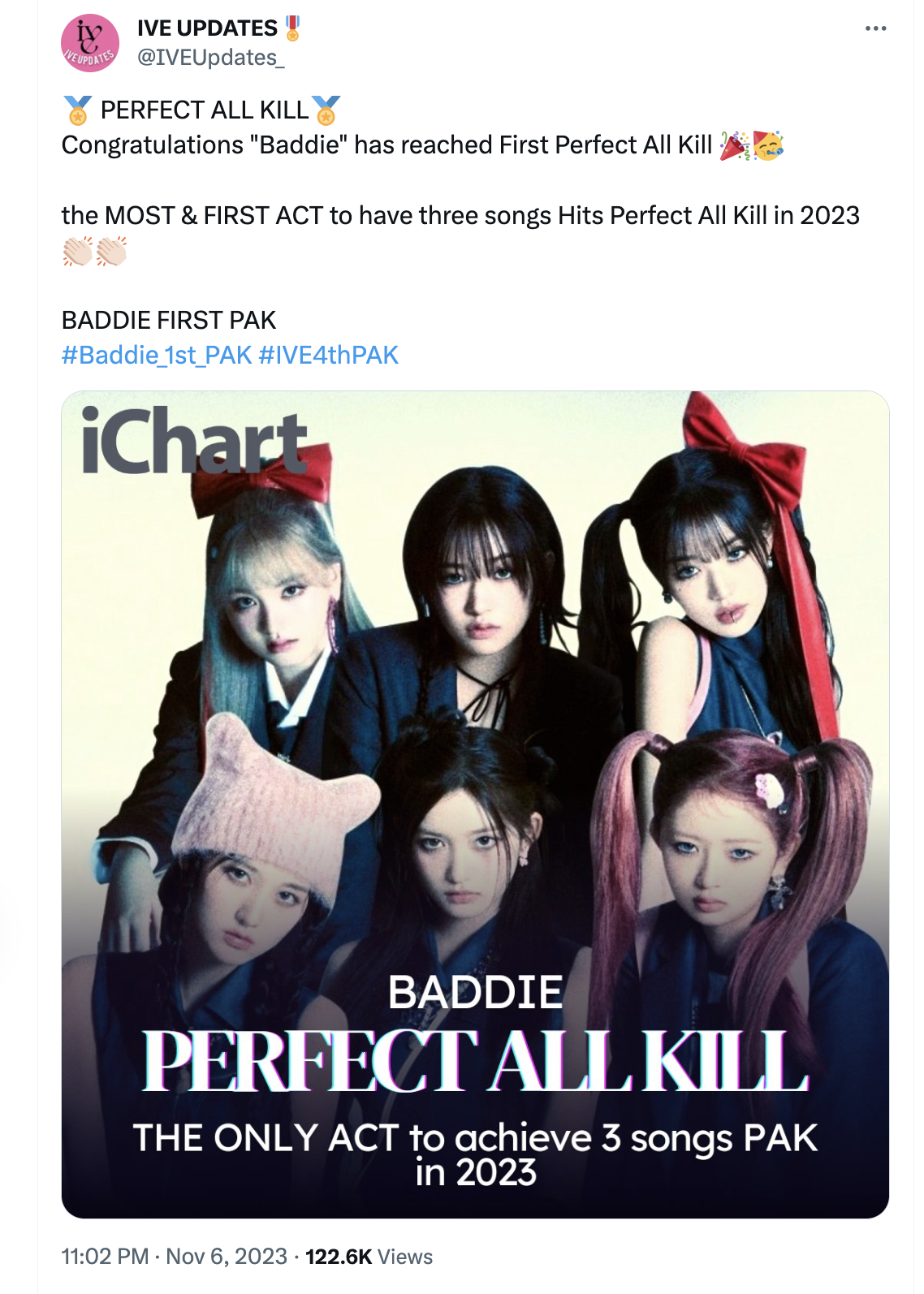Just Pop, Hold the K.
Some comments from Bang Si-Hyuk aka Bang PD, the founder of HYBE and its public face, have been making the rounds today.
To quote from one of the many rage bait articles circulating:
In a recent interview, Bang stated, “These days, I often say that we need to remove the ‘K’ from K-pop. K-pop now needs to meet a broader consumer base in a wider market.” He believes leaning into more universal themes is key for further global expansion.
The impetus for this burst of globally-minded but domestic-facing PR from Bang would seem to be BTS member Jungkook’s just released solo album, Golden. Why? Because a lot of resources were sunk into making this album (and Jungkook) a success in the USA.
(Because who cares what the kids are listening to in Korea, right?? That would be IVE from Starship Entertainment, a subsidiary of Kakao.)
What we’re witnessing is the latest volley in HYBE’s lengthy battle to completely vulture capital the K-Pop industry, killing off what was left of the genre and replacing it with cheaply made and produced, middest of mid, blandest of bland mainstream American Top 40 Pop.
This is the direction first BigHit then HYBE have been trending in since they first started picking up traction in the USA and it’s only accelerated since picking up Scooter Braun to join the team (and check out the excellent Money 4 Nothing episode diving into his history.) BTS’s “English trilogy” were K-Pop’s Waterloo… and no, not the good one, the other one where Napoleon met his utter defeat. The names should send chills down your spine, the sheer mediocrity contained within: “Dynamite,” “Butter,” and “Permission to Dance.” Songs so mediocre that I honestly prefer the Kids Bop versions because at the least the vocals are cleanly mixed.
That bland “English trilogy” is now the face of K-Pop in the USA.
Thanks to HYBE, “K-Pop” no longer means the big pop art wildness of the last boom—songs that sparked critical interest but were also cool like “Fantastic Baby,” “Bar Bar Bar,” “Catallena”—it means the same Ed Sheeran and Jack Antonoff songs that you’re already hearing on the radio except done by some Korean guys in multicolored hair with the trademarked garbled HYBE vocal sound and you’ll get called a racist by unhinged, online stans if you say you don’t like it.
Yeah, I’d want to distance myself from the “K-Pop” label, too.
Who today is offering anything as compelling as a catchy disco song with a Punjabi hook and a sushi-mermaid themed MV? (Okay, who except Taemin??)
Because here is something that some stans refuse to understand: It’s not just about the language the lyrics are written in that makes a song “English” or “Korean.”. There are musical things like song structure, ways of singing, chord choices, production choices, etc. that go into crafting a song. And these things will be different depending on the market.
One of the best examples of a K-Pop song done in English without losing the “K-Pop” of it is GOT7’s “Lullaby”. It sounds exactly like what it is: A K-Pop song with English lyrics. That is not what this discourse is about.
Dropping the “K” from K-Pop means not only retooling the types of songs being released to appeal to a “global” (read American) ear (a direction that many, myself included, are not all that fond of, which is why we turned to K-Pop in the first place) but it also means throwing away the decades of existing branding, which includes ties to the very popular K-drama market, as well as shedding the existing market for K-Pop (aka people like me) in the hopes of pulling a larger audience from… mainstream pop fans?
Except that we already have mainstream Top 40 Pop in the USA. What is Jungkook doing that whatever English-language Top 40 Pop It Boy isn’t already doing? Collabing with Jack Harlow? It’s been done. Why would we want an imported Lil Nas X or Harry Styles when we already have Lil Nas X and Harry Styles at home?
If you’ll forgive me the digression, S.M. Entertainment actually did manage to pull a “Just Pop” with TVXQ in Japan. They filed off the “K” and turned TVXQ into a Japanese boy group from Korea. But it took years of work, dedicated language practice, and creating a quality product that was different from the domestic boy groups already on the market in Japan and—the important part—offered something that appealed to a large swathe of Japanese boy group fans. I have yet to see HYBE put forth anything as ambitious this for the American market.
One of the comments in the rage bait post said:
“Honestly, every time he [Bang] does an interview, it feels like he won the lottery with BTS, and he doesn’t seem to know anything about this industry.”
Honestly… I have to agree. Because the end goal here seems unclear. Trash the image of “K-Pop” in America with a shoddy product and aggressively awful fans, then when those fans start drifting away rebrand as “Pop” and try to compete directly with the domestic product by releasing more cheaply produced versions of the same types of songs already being offered?
How does this work? And, more importantly, what good comes of ignoring the market at home?
More and more it feels like global K-Pop has been driven into a ditch and we’re all just sitting here spinning our wheels trying to figure out how to get back onto the road.
Meanwhile J-Pop idol group Atarashii Gakko is bringing something new and different to the USA this week. They’ll be appearing on Jimmy Kimmel and have a small tour scheduled, which seems to be going over pretty well.
It’s essentially the opposite of the “Pop” approach. It worked for Baby Metal. It worked for 2NE1. We’ll see if it works for Atarashii Gakko too.

